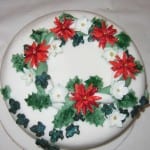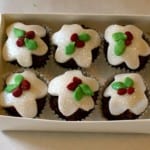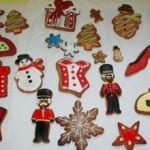Christmas is a time for celebration in the deepest, darkest days of the year. Humans have been celebrating the winter solstice, which falls on 21 December, for thousands of years. It’s time to gather together, keep warm and look forward to welcoming the Spring. The time of year when we’re half way through the worst, coldest weather, what a great time to have a celebration.
Traditional foods use dried fruit as fresh fruit was difficult to come by before planes were invented so Christmas cake, mince pies, Christmas pudding, stollen and gingerbread. The warming spices of cinnamon and ginger and smell of oranges conjures up Christmas to most of us.
Chocolate and Ginger Christmas Pudding
Cranberry and Orange Mincemeat
Traditions
Christmas pudding is made on ‘Stir-up Sunday’ which is the Sunday before Advent – the end of November – and everyone in the family takes a turn to stir the pudding with a wooden spoon from East to West (clockwise) in honor of the three Kings making their journey, with their eyes closed whilst making a secret wish. The sprig of holly is a reminder of Jesus’ ‘Crown of Thorns’. Holly also was supposed to bring good luck and has special healing powers.
The term Stir-up Sunday comes from the opening words for the day in the Book of Common Prayer of 1549. The collect is the prayer of the day that ‘collects’ up the themes of the readings during a church service. The original prayer used to start:
‘Stir up, we beseech thee’, – hence the term Stir Up Sunday.
Another custom is to put silver or gold items into the pudding; each has a special significance:
- Silver coins are supposed to bring luck to whoever finds them in their slice of pudding on Christmas Day.
- A gold ring signifies that the finder will be married before the year is out.
- A silver thimble or button signifies that the finder will never marry and remain a spinster or bachelor forever, or if people didn’t want to upset whoever pulled out the thimble the meaning was changed to ‘having a lucky life’.






